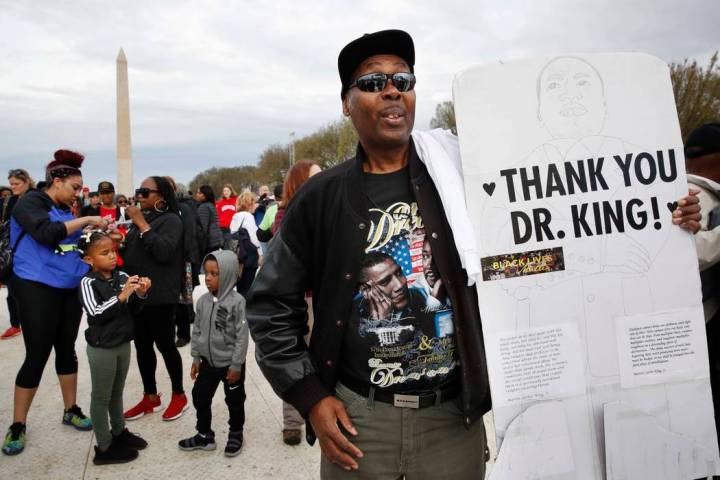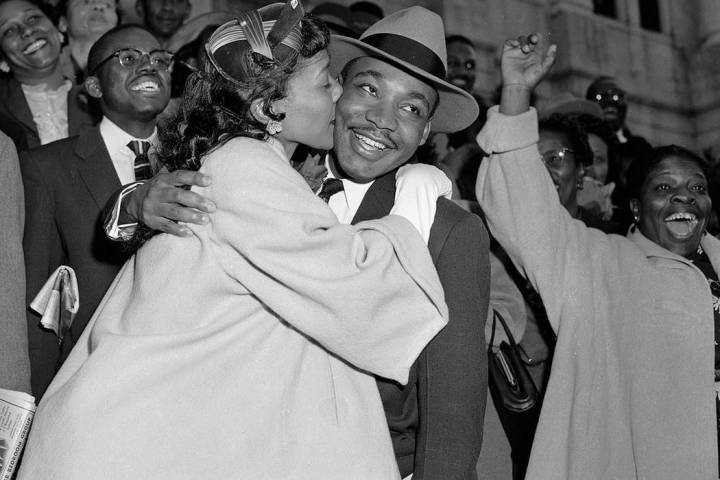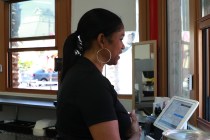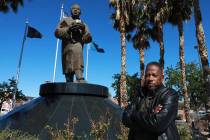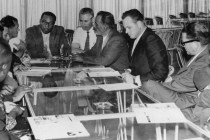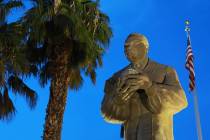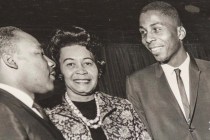Alyssa Taylor’s voice, smooth and powerful as she recited Sam Cooke’s 1964 classic, reverberated through a crowd of about 100 who gathered to commemorate the 50th anniversary of King’s assassination April 4, 1968.
MLK: 50 years later
Growing up the daughter of the pastor of one of Las Vegas’ oldest black churches left an impression on Karen Bennett-Haron.
Fifty years after the assassination of Martin Luther King Jr., religious leaders from various faiths gathered for prayer and readings at various events in Washington, determined to keep the civil rights leader’s vision and message alive.
Martin Luther King Jr. was 39 when he was assassinated on the evening of April 4, 1968, in Memphis, Tennessee, and he had already become one of the world’s most well-known figures.
Expressions of sorrow and pleas for calm filled the April 5, 1968, edition of the Las Vegas Review-Journal.
Denette Braud didn’t take no for an answer when she was denied a business loan to expand her business into a shopping center.
The 5-ton bronze statue, unveiled Jan. 20, 2001, by Martin Luther King III and sculptor Tina Allen, has turned into much more than a focal point in recent years.
In his “I Have a Dream” speech, Dr. Martin Luther King Jr. spoke of his dream that his children, peers and mentors would have the opportunity for quality of life, access to education, and to be seen as human, said Micajah Daniels, a co-founder of Black Lives Matter UNLV.
Former state archivist Guy Rocha traces the origins of the description “The Mississippi of the West” to a March 1954 issue of Ebony magazine.
Four years before his assassination, Martin Luther King Jr. left an indelible impression at two speeches in Las Vegas.
Some 50 years after Washington, D.C., added legal protections against discrimination with the Fair Housing Act — a law enacted in the days after the 1968 assassination of Martin Luther King Jr. — disparity still exists locally and beyond.





